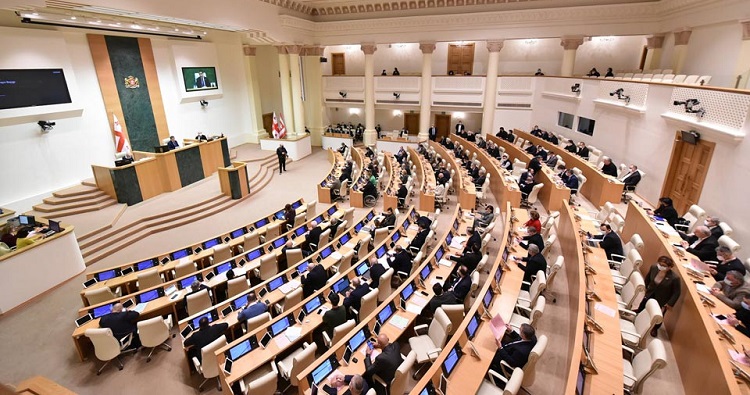Parliament speaker says deoligarchisation bill “free from political interests”, points to basis in Ukraine law

The Georgian parliament speaker said that opposition lawmakers would be able to make their remarks on the deoligarchisation bill during detailed discussions ahead of its second reading later this month. Photo: parliament press office
Georgian parliament speaker Shalva Papuashvili on Friday said the deoligarchisation bill proposed by the ruling party as part of work for fulfilling conditions for obtaining the European Union membership candidate status was “free from political interests” as it was based on Ukrainian legislation.
In response to criticism of the bill - proposed in October and adopted with its first reading earlier this month - from a part of the domestic opposition, the official said opposition lawmakers would be able to make their remarks on the document during detailed discussions ahead of its second reading later this month.
He also said the Ukrainian deoligarchisation law, used for drafting the document by Georgian lawmakers, was “unique” worldwide and had been approved by relevant bodies of the EU.
In their comments on the bill, the section of opposition politicians said it “must include” Bidzina Ivanishvili, the founder of the ruling party and former prime minister, as a “shadow ruler” of the country, while authors of the bill have pointed to criteria for defining oligarchs as outlined in the document and said mentioning specific names in the bill would be “very undemocratic”.
 The Georgian parliament passed the deoligarchisation bill with its first reading on November 3. Photo: parliaments press office.
The Georgian parliament passed the deoligarchisation bill with its first reading on November 3. Photo: parliaments press office.
Ruling party representatives have claimed the “radical part” of the opposition is “unhappy” by the bill by claiming they are against the country obtaining the EU membership candidate status under current authorities.
Anri Okhanashvili, the chair of the parliament’s legal affairs committee from the ruling party, in October said the only exception in using the Ukrainian model for the bill was that unlike Ukraine, where the president’s office is responsible for compiling the list of potential oligarchs, in Georgia the parliament would be tasked with the objective.
Okhanashvili also said the bill would consider an individual to be an oligarch if they met at least three of four criteria designated for the purpose - influence over the media, engagement in monopolistic activity, possession of a specific amount of assets, and influence in political and public life.
 Tweet
Tweet  Share
Share